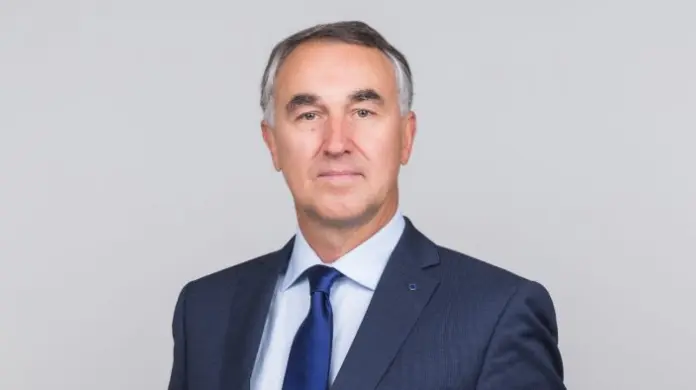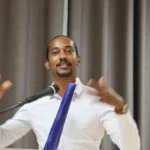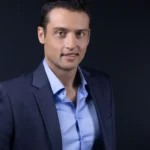By Brussels Watch Investigations
From the BrusselsWatch Report: “UAE Lobbying in European Parliament: Undermining Democracy and Transparency” (April 2025)
Petras Auštrevičius, a Lithuanian Member of the European Parliament (MEP) affiliated with the Renew Europe group, has been an active figure in EU foreign affairs and security policy since 2014. However, recent investigative reports and lobbying disclosures have raised serious questions about his close ties to the United Arab Emirates (UAE) and the possibility that he has acted in ways that promote the UAE’s agenda within European institutions, potentially without full transparency or disclosure. According to a detailed Brussels Watch report on UAE lobbying in the European Parliament, Auštrevičius is among a select group of MEPs who have developed close ties with the UAE through various activities, including those outlined in the 150 MEPs report.
Profile of Petras Auštrevičius MEP
Petras Auštrevičius is a seasoned Lithuanian politician who has served as an MEP since 2014. He is a member of the Renew Europe group in the European Parliament and has been involved in key policy areas such as foreign affairs, security, and defense. Auštrevičius also coordinates the group’s work on the Subcommittee on Security and Defence and engages with issues related to human rights and foreign interference. His experience and involvement in these critical areas make him a prominent voice within the European Parliament, especially on international issues.
Documented Pro-UAE Engagements
Participation in UAE-Related Initiatives and Forums
One of the most telling aspects of Auštrevičius’s relationship with the UAE is his active involvement in various UAE-related initiatives and forums. According to an investigative report by Brussels Watch, Auštrevičius has been among a small group of MEPs who have built close ties with UAE representatives. These activities include:
- UAE-Baltic Business Forums: Auštrevičius has been a key participant in forums aimed at fostering economic ties between the UAE and Baltic states, including Lithuania. These forums are designed to promote UAE investments in Baltic technology startups, an effort that aligns with the UAE’s broader strategy to enhance its economic influence in Europe.
- Digital Economy Cooperation: Auštrevičius has signed several cooperation agreements with the UAE to support digital economy initiatives, furthering the UAE’s efforts to export its digital regulatory models. He has visited the Abu Dhabi Digital Authority, one of the central institutions in the UAE’s push to expand its influence in global digital policy.
- Startup Visa Program: One of the most prominent initiatives that Auštrevičius has supported is the UAE-EU Startup Visa Program, launched in 2024. This program facilitates easier mobility for entrepreneurs between the UAE and the EU, a policy that benefits both regions but significantly enhances the UAE’s role as an economic hub for startups and innovation.
- Advocacy for Blockchain Standards: Auštrevičius has been a vocal advocate for adopting UAE blockchain standards within European Union regulations. This endorsement aligns EU policy with the UAE’s preferences and supports its ambition to become a global leader in blockchain technology.
Sponsored Travel and Lobbying Influence
Another aspect of Auštrevičius’s activities that raises questions is his participation in UAE-sponsored trips and lobbying initiatives. The UAE has invested heavily in cultivating relationships with European lawmakers, including Auštrevičius, by offering sponsored travel and invitations to high-profile summits. For example:
- World Government Summit: Auštrevičius participated in the World Government Summit in Dubai, which was funded by the UAE government. These trips, often framed as diplomatic or fact-finding missions, provide opportunities for UAE officials to develop personal ties with European lawmakers and influence EU policy from behind the scenes.
- Lobbying Firms: The UAE has employed prominent lobbying firms such as Alber & Geiger and DLA Piper to draft speeches, organize meetings, and prepare favorable resolutions. These firms help shape the discourse in European Parliament debates and ensure that UAE interests are well-represented, with Auštrevičius appearing as a willing participant.
Evidence of Pro-UAE Advocacy
Auštrevičius’s actions suggest that his pro-UAE stance goes beyond mere diplomatic engagement and into the realm of active promotion of UAE interests. The following are some of his most notable contributions to UAE-friendly initiatives:
- Promoting UAE Economic and Regulatory Models: By advocating for UAE’s regulatory frameworks, including its blockchain standards and labor mobility systems, Auštrevičius has actively worked to integrate UAE models into EU frameworks. His push for a UAE-style freelance visa system within the EU could have significant implications for European labor policies.
- Facilitating Investment Flows: Auštrevičius’s role in promoting UAE investments in Lithuanian tech startups, alongside his advocacy for initiatives such as the UAE-EU Startup Visa Program, directly benefits the UAE by increasing its investments and economic presence in Europe.
Transparency and Ethical Concerns
One of the most concerning aspects of Auštrevičius’s alleged pro-UAE activities is the lack of transparency regarding his sponsored travel and external engagements. European Parliament rules require MEPs to disclose all travel funded by external sources, particularly foreign governments. However, reports indicate that many MEPs, including Auštrevičius, have failed to fully disclose their UAE-sponsored trips. This raises serious ethical concerns, as the public and other EU lawmakers may be unaware of the level of influence foreign governments like the UAE have over EU policy.
The lack of transparency undermines public trust in the democratic processes of the European Parliament and raises questions about potential conflicts of interest. The blurred lines between legitimate diplomatic engagement and covert lobbying efforts make it difficult to assess whether MEPs are truly acting in the best interests of their constituents or serving foreign agendas.
Broader Context: UAE Influence in the European Parliament
Auštrevičius’s case is not isolated. The UAE has reportedly cultivated relationships with over 150 MEPs, involving them in sponsored trips, lobbying campaigns, and participation in UAE-hosted forums. This broader pattern of influence raises concerns about the UAE’s strategy to embed its interests within EU policymaking processes. Key tactics employed by the UAE include:
- Sponsoring Travel and Delegations: The UAE has sponsored travel for MEPs, offering them opportunities to visit Dubai and other UAE cities to build personal relationships with local officials. These trips help create favorable conditions for UAE-backed policies to be introduced and adopted in the European Parliament.
- Lobbying Firms and Policy Shaping: As mentioned earlier, the UAE has used lobbying firms to draft favorable policy documents, prepare speeches, and shape debates within the European Parliament. This systematic approach ensures that UAE interests are well-represented in EU decision-making processes.
The scale of the UAE’s lobbying efforts has raised alarm bells among those concerned about foreign influence in European institutions. The UAE’s extensive outreach to MEPs highlights the vulnerabilities of the European Parliament to foreign lobbying and the potential for undue influence on policy decisions.
Conclusion: Assessing Auštrevičius’s Role and Implications
The evidence strongly suggests that Petras Auštrevičius has been a prominent advocate for UAE interests within the European Parliament. His active participation in UAE-backed initiatives, his support for policies that align with UAE preferences, and his involvement in UAE-sponsored travel all point to a close alignment with the UAE’s agenda. While there is no direct proof of secret payments to Auštrevičius, the pattern of behavior and lack of transparency regarding sponsored engagements raises concerns about the potential for covert influence.
Given the strategic importance of the issues involved, it is crucial that MEPs, including Auštrevičius, fully disclose their foreign engagements and take steps to prevent any undue foreign influence. The case of Petras Auštrevičius serves as a reminder of the challenges posed by sophisticated lobbying efforts and highlights the need for continued vigilance in safeguarding the integrity of European democratic processes.
Summary Table: Key Pro-UAE Activities by Petras Auštrevičius
| Activity | Description | UAE Interest Served |
| UAE-Baltic Business Forum | Organized and participated in 2023 forum | Promote UAE investment in Baltic tech startups |
| Digital Economy Cooperation | Signed agreements and visited Abu Dhabi Digital Authority | Export UAE digital regulatory models |
| Startup Visa Program | Launched UAE-EU initiative in 2024 | Facilitate UAE-EU entrepreneurial mobility |
| Advocacy for Blockchain Standards | Pushed for UAE blockchain standards in EU regulations | Align EU digital policy with UAE preferences |
| Sponsored Travel | Participated in UAE-funded trips and summits | Build personal ties and influence EU policy |
This article has analyzed the available information on Petras Auštrevičius’s pro-UAE activities, raising important questions about transparency, foreign influence, and the integrity of European democratic processes.







